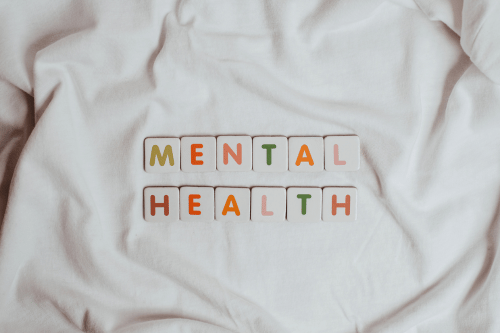Top Tips for Thriving During Mental Wellness Month
Mental Wellness Month raises awareness about mental health, aiming to educate and support communities. Learn to recognize mental health issues, practice self-care, and access resources. Engage to improve your well-being and support others.
Key Takeaways
Mental Wellness Month aims to raise awareness, break stigma, and encourage individuals to prioritize self-care and seek professional help.
Engaging in personal practices such as daily gratitude, mindfulness, and physical activity can significantly improve mental health and resilience.
Community and workplace initiatives, as well as the support of family and friends, are crucial for creating a supportive environment and promoting ongoing mental wellness.
Understanding Mental Wellness Month

Mental Wellness Month serves as a platform to educate communities on recognizing signs of mental health disorders and mental health condition. This observance aims to create supportive spaces where individuals feel comfortable seeking professional help and discussing their mental health challenges. It’s a time to bring mental health awareness month to the forefront, encouraging individuals to prioritize self-care and mental well-being.
The month-long observance promotes resources that help individuals understand the importance of mental health and guides them towards professional help when needed. Participating in Mental Wellness Month provides access to valuable information and tools that can significantly impact lives. This increased public dialogue about mental health issues helps to break down the stigma associated with mental illness and fosters a more open and accepting society.
Mental Wellness Month emphasizes action beyond awareness. It calls for recognizing the importance of mental and physical health and taking steps toward a healthier, more balanced life. Whether it’s through educational initiatives, community support, or personal self-care practices, this month provides numerous opportunities to enhance our mental well-being and support those around us.
Personal Actions for Mental Wellness

Personal actions to maintain mental wellness are vital for overall well-being. One powerful practice is daily gratitude, which can enhance emotional health and resilience. Focusing on life’s positive aspects can shift our mindset and improve our emotional state. Simple practices like keeping a gratitude journal can make a significant difference in how we perceive and handle life’s challenges.
Mindfulness practices like deep breathing and mindful eating play a vital role in stress reduction. These practices help us stay present and aware of our thoughts and emotions, allowing us to manage stress more effectively. A consistent sleep routine is another crucial aspect of mental and physical health. Quality sleep is fundamental to our well-being, and a regular sleep schedule can help improve our mood and cognitive function.
Physical activity is another key component of managing stress and maintaining mental wellness. Engaging in regular physical activities, even simple exercises like walking, can significantly reduce stress levels and improve overall mental health. Additionally, fostering resilience through balanced nutrition and regular exercise can have a profound impact on our mental and physical health.
Learning new skills or hobbies can also contribute to mental wellness. Whether it’s picking up a new instrument, exploring a new art form, or diving into a new subject, these activities can provide a sense of accomplishment and joy. Incorporating these actions into daily life helps manage stress, boost mental health, and improve overall quality of life.
Community Engagement and Support
Engaging with the community is vital for raising awareness about mental health challenges and offering support to those in need. One way to foster community spirit is through events such as open mic nights, where individuals can share their mental health experiences through stories, poems, or music. These events create a platform for open dialogue and empathy, helping to break down the stigma associated with mental illness.
Art exhibitions featuring works by those with mental health challenges can also promote dialogue and understanding within the community. These exhibitions provide an opportunity for individuals to express their experiences creatively and for the community to engage with and support their journey. Similarly, film screenings of documentaries on mental health can stimulate impactful discussions and enhance public understanding.
Community wellness events, such as mental health screenings, mindfulness exercises, and resource sharing, play a crucial role in promoting mental well-being. Activities like a gratitude wall, where community members share what they are thankful for, can enhance mental well-being and foster a sense of community. Organizing support groups and wellness challenges can create safe spaces for individuals to connect and share experiences, fostering a more inclusive and compassionate society.
Workplace Initiatives for Mental Wellness

Workplace initiatives play a crucial role in fostering a supportive environment and promoting mental wellness among employees. Lunchtime learning sessions, for example, can provide employees with valuable knowledge on mental health topics and self-care strategies. These sessions can help normalize conversations about mental health and equip employees with the tools they need to manage stress effectively.
Scheduling mental health workshops can educate employees and facilitate open conversations about mental health challenges. These workshops can cover a range of topics, from identifying symptoms of mental illness to discussing treatment options and self-care practices. Encouraging mental health days, where employees can take time off to recharge, can ultimately improve productivity and well-being.
Employee-led mental health groups can foster a sense of community and support within the workplace. These groups provide a platform for employees to share their experiences and offer mutual support. Stable scheduling practices, such as those implemented by Gap, Inc., have been shown to increase employee productivity and reduce stress.
Providing a list of mental health resources and training for managers on mental health can further empower employees to seek assistance and enhance their well-being. Organizations like Mental Health America offer toolkits and resources to help employers create supportive environments for mental health. By incorporating these resources and initiatives, workplaces can play a significant role in promoting mental wellness and supporting their employees’ mental health journey.
Educational Institutions and Mental Wellness

Educational institutions significantly contribute to promoting mental wellness among students. Structured mental health literacy programs in classrooms can greatly enhance students’ understanding of mental health and reduce stigma. These programs can equip students with the knowledge and skills they need to support their own mental well-being and that of their peers.
Schools can encourage mindfulness practices through classroom activities and dedicated time for individual practice. These practices can help students manage stress, improve focus, and develop emotional resilience. Programs focusing on social, emotional, and behavioral learning can further contribute to students’ emotional development and social skills.
Integrating these initiatives into the curriculum creates a supportive environment that promotes mental wellness and prepares students to navigate life’s challenges with confidence and resilience. Educational institutions have the unique opportunity to shape the next generation’s understanding of mental health and well-being.
Utilizing Free Resources for Mental Health
Free resources are crucial for individuals seeking mental health support, especially during challenging times. An online treatment locator is a valuable resource that helps users find local mental health services. This tool can connect individuals with the appropriate support and treatment options in their area.
Another useful resource is the ability to create a personalized safety plan online, which can be printed or emailed to ensure confidentiality. This plan can provide a structured approach to managing mental health crises and ensuring safety.
Additionally, helplines and hotlines can offer immediate assistance during crises involving emotional distress, disconnection from reality, or severe anxiety. They can also provide referrals to local treatment facilities and support groups.
Taking advantage of these free resources allows individuals to access the support they need to manage their mental health effectively. These resources can provide crucial assistance during times of need and contribute to overall mental wellness.
The Role of Family and Friends
Family and friends play a significant role in supporting mental wellness. Building a social support network can provide emotional protection and help alleviate stress. Maintaining social connections with supportive individuals is essential for mental health. Peer support programs, where individuals with lived experiences mentor others facing similar challenges, can also be incredibly beneficial.
Strong relationships between students, staff, and families promote overall mental health in educational settings. Offering assistance with daily tasks can significantly help loved ones dealing with mental health problems. Continually inviting friends or family members to social activities can help reduce feelings of isolation they may experience.
Fostering strong connections and offering support, family and friends can play an important role in enhancing mental wellness and providing a safety net for those in need.
Upcoming Events and Activities
Throughout Mental Wellness Month, various upcoming events and activities are organized to promote mental wellness. Guided meditation sessions can be organized as virtual events to foster group mental wellness. These sessions can help participants relax and practice mindfulness together.
Virtual yoga classes offer a relaxing way to enhance mental wellness and can be easily accessed from home. Similarly, virtual cooking classes can serve as engaging activities that promote mindfulness and social interaction among participants. Outdoor activities like hiking and gardening can promote relaxation and social connections, which are beneficial for mental health.
Interactive activities like Self-Care Bingo motivate individuals to engage in various mental wellness practices. Music therapy sessions and mental health screenings can also be beneficial in promoting mental well-being and identifying potential issues early. Participating in these events and activities allows individuals to actively engage in their mental wellness journey.
Encouraging Ongoing Mental Wellness Practices

Mental Wellness Month provides a focused period for mental health awareness, but ongoing mental wellness practices should be encouraged throughout the year. Engaging in regular physical activity, such as walking for 30 minutes, can significantly improve mood and reduce stress. Incorporating mindfulness practices and stress management techniques into daily routines can also have long-lasting benefits.
Raising awareness about mental health challenges and promoting mental wellness should be a continuous effort. Encouraging ongoing practices like yoga, meditation, and mindfulness helps individuals maintain their mental health and well-being beyond Mental Wellness Month. Maintaining the momentum and prioritizing mental wellness in daily life is crucial.
Summary
In summary, Mental Wellness Month is a vital observance that promotes mental health awareness and encourages individuals to take actionable steps towards mental well-being. Through personal actions, community engagement, workplace initiatives, and educational programs, we can create a supportive environment that fosters mental wellness.
Let’s continue to utilize free resources, support our family and friends, and participate in upcoming events to maintain our mental health. Remember, mental wellness is a continuous journey, and by prioritizing our mental well-being, we can lead happier, healthier lives.









